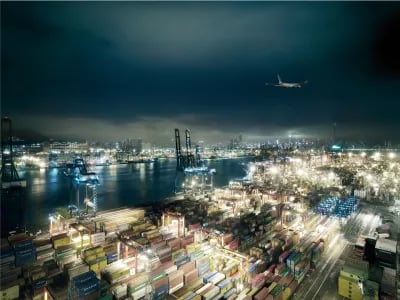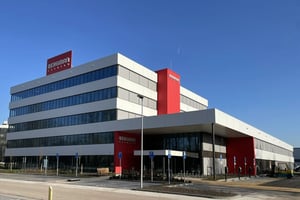There are a rapidly growing number of objects other than computers, smartphones and tablets with a link to the internet. This phenomenon is known as the ‘Internet of Things’, and one company that knows better than anyone how to turn it into a lucrative business
is the Netherlands-based startup Undagrid. Company CEO Rolf van de Velde: ‘The trick is to extract the type of data you need in order to see your company in a completely different light.’
Although the Internet of Things is hardly a new phenomenon – the term was first coined back in the late 1990s – it is only in the last few years that it has truly taken off. Ranging from LED lights, thermostats and gas and electricity meters to cars, washing machines and refrigerators, a growing number of consumer goods are sharing information over the internet, while many of these items are automatically updated with the latest software. As household appliance manufacturer Siemens puts it in a recent payoff: ‘Home is where your app is.’
Undagrid’s Rolf van de Velde feels the term ‘Internet of Things’ is already becoming overused: ‘We’re all caught up in the hype. Also, you need to be critical and wonder who ultimately stands to benefit from all these internet connections. Is it the user, or mainly the manufacturer? We believe your top priority should always be the users and their issues.’
Van de Velde’s Undagrid provides companies with online connections for specific business assets, allowing them to keep better track of – and gain greater control over – their business processes. Explained in simple terms, ‘dumb’ operating assets (without their own power supply) are equipped with a ‘smart’ device, after which these assets are collectively integrated into a secure, dedicated network which does not need to be configured or managed. The technology required is highly energy-efficient, with devices that can run for several years on a single battery.
Undagrid’s first big break was a contract with Amsterdam Airport Schiphol, where it upgraded more than 5,000 non-motorised vehicles (ranging from trailers to boarding stairs) to the Internet of Things. The problem with these vehicles was that trolleys and carts would often go missing for longer periods of time, or that the ones required would be parked in the wrong place at the wrong time. Van de Velde: ‘For the logistics companies involved, finding and moving all those items takes a lot of time, energy and money.



.jpg?width=448&height=200&name=cybersecurity-privacy-protect-data%20(1).jpg)









